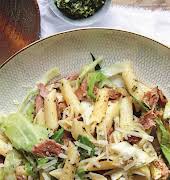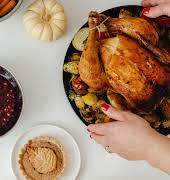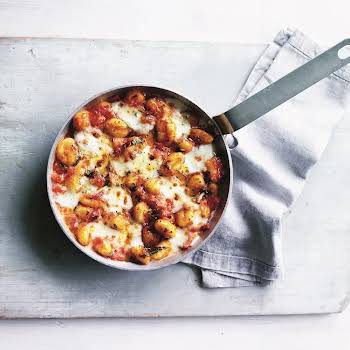
By IMAGE
08th Jul 2015
08th Jul 2015
Happy Woman
Consultant Dietician Paula Mee joins forces with us here at IMAGE.ie, to bring you all you need to know on the foods that improve your mood, as part of our ‘Get Happy’ campaign.
There is nothing new in the fact that a person’s nutrition can affect their mood, behaviour, and brain function.?The brain accounts for about 2% of our body weight, but uses up about 20% of our total daily calories. Relative to its size and weight, it is very demanding. That’s why people who don’t consume enough calories in their diet are more likely to experience changes in their mood and brain functioning. Even choosing to leave out breakfast can affect your functional ability and mood.
Although no one “miracle” food is going to boost your brain power straight away, regularly adding certain foods like these to your diet will help you function at your best.
- Opt for wholegrains.
Like everything else in your body, the brain cannot work without energy; it demands a constant supply of glucose, which we get from carbohydrates. But it’s not enough to choose any old carbohydrate; we should be fussy about the ones we choose. Carbohydrates lower in glycemic index are broken into glucose slower than refined processed carbohydrates, thereby providing a steadier supply of energy to the brain. The B vitamins found in wholegrains are also important for ensuring a healthy nervous system. If you tend to rely on white bread and sugary cereals as your main types of carbohydrates, you are not doing your brain any favours. Not only do they lack essential nutrients like B vitamins and fibre, but in excess, they can lead to a slump in energy levels and subsequent snacking on sugary foods.
- Oily fish
Some might consider ?fat? an unhealthy part of the diet, however a good balance of different fats is essential for health. Of the solid matter in the brain,?60% is fat. One of the best brain boosting foods you can choose is fish, especially oily fish such as salmon, mackerel, trout and sardines. These are rich in the essential omega 3 fatty acids, DHA and EPA. We cannot make these in the body so we must get them through diet.
Preliminary studies suggest that people with bipolar disorder who take omega-3 fatty acids have a significantly longer period in which their mood is stable with no episodes of depression. Although more evidence is needed on this, what we already know to date gives us plenty of reasons to eat more fish. Aim for 2 portions every week, with at least one being oily. One portion is 100g/4oz cooked.
-
Eat more tomatoes
Yes, tomatoes! Research is now beginning to emerge on the link between tomatoes and mood. Researchers in Japan found that those who reported eating tomatoes 2-6 times a week were 46% less likely to report mild or severe symptoms of depression than those who said they ate tomatoes less than once a week. No such association was found for other vegetables. These results suggest that a tomato-rich diet may have a bene?cial effect on the prevention of depressive symptoms. Further studies are needed to con?rm these ?ndings. In the meantime, there is no harm in adding more tomatoes to your meals.
-
Get a blueberry boost
When we talk about getting “rusty” we may not be far off. Oxidation, the process that causes metal to rust, can also damage brain cells. This oxidative stress plays a role in many diseases associated with aging such as dementia. Berries all contain powerful antioxidants. So including these more often may help prevent, or at least limit, the damage because they can disarm potentially cell-injuring free radicals in the body. Eat them as a snack with low fat probiotic yoghurt, added to cereals and salads or use in homemade smoothies. An 80g serving has only 55 kcals.
#ICYMI: ‘Healthy’ foods to avoid
-
Go nuts!
Like fish, walnuts, contain high levels of essential fatty acids that help your brain to perform at its best. The walnut even looks remarkably like the human brain. Have a small handful as a snack or scatter over your breakfast cereal or salads for added crunch and texture. Nuts contain a good amount of iron, which helps carry oxygen around the body and contributes to normal cognitive function. They also contain vitamin E and vitamin B6, making them an excellent source of nourishment for your nervous system and brain. Small amounts of omega 3s can also be found seeds such as sunflower and pumpkin.?
- Eat Garlic
Has a long list of health-enhancing qualities. It increases blood flow around your body, boosting both energy and mood. Garlic boosts serotonin levels and overall wellbeing.
- Leafy green vegetables
Greens offer a fantastic amount of nutritional value. They contain folic acid, which studies have shown can have a positive effect on mental health. Folic acid helps your brain’s serotonin receptors work properly. On top of that, leafy greens are a rich source of nutrients, such as iron, vitamin K and potassium, which will help your body stay healthy.
- Dark chocolate
This advice is easy to give: Eat more chocolate! In recent years, analysis of the cocoa bean has shown that the cocoa liqueur contained in the bean is rich in polyphenols and thought to have antioxidant effects within the body. Buy dark chocolate that contains about 70 percent cocoa solids.
In one particular study, the researchers aimed to examine the effects of cocoa polyphenols on cognition and mood. In a randomized, double-blind study, healthy middle-aged participants received a dark chocolate drink mix standardized to contain 500 mg, 250 mg or 0 mg of polyphenols. Participants consumed their assigned treatment once daily for 30 days. After 30 days, the high dose of treatment significantly increased self-rated calmness and contentedness relative to placebo. This randomized controlled trial is perhaps the first to demonstrate the positive effects of cocoa polyphenols on mood in healthy participants.
Some researchers say that the amounts of the chemicals in chocolate are not high enough for a genuine mood-enhancing effect. Some studies have found that cocoa filled capsules containing the same amount of chemicals as chocolate don’t satisfy cravings the way a bar of chocolate would. They argue that it is the sweetness and taste of chocolate that makes people feel happy.
Whatever you choose to believe, moderation is the key. Like anything else, eating too much chocolate can lead to weight gain. It is a myth that dark chocolate contains fewer calories than milk – they both contain roughly the same.
So, what’s the message? Eating well and including nutrient dense foods is good for your mental as well as your physical health.
For more from Paula Mee, head to?www.paulamee.com






























